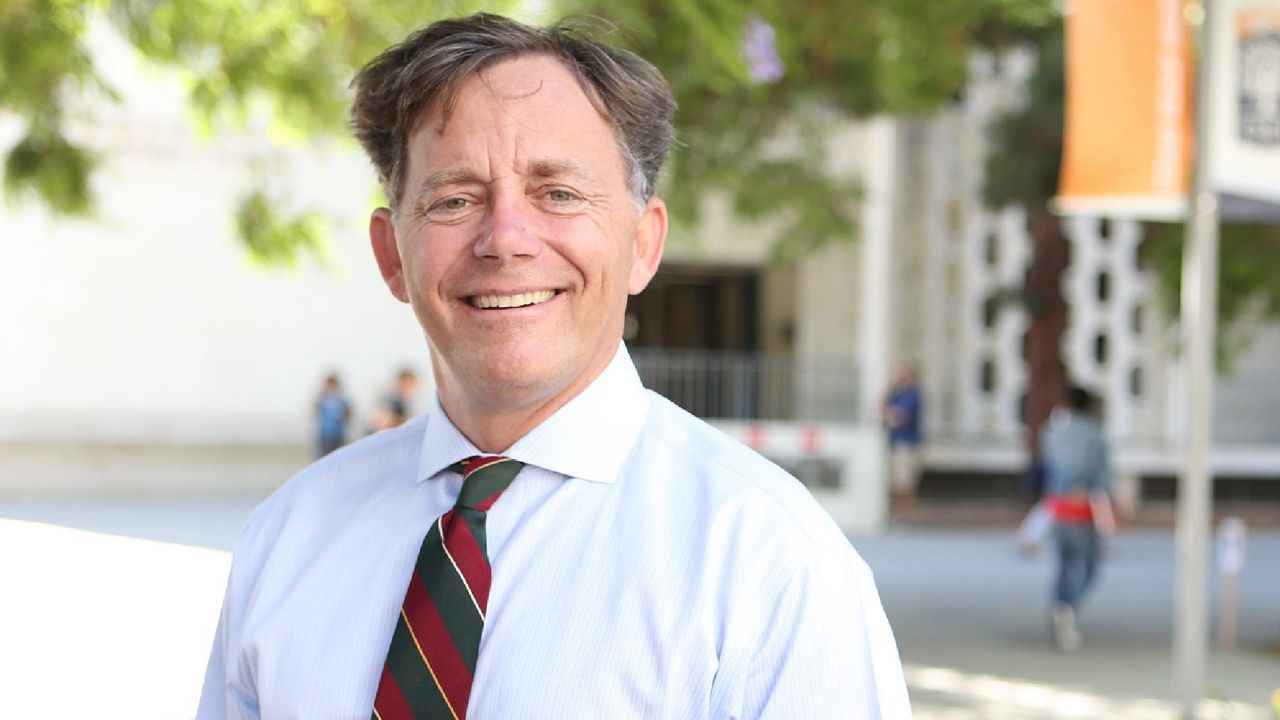ORANGE COUNTY, Calif. — Josh Newman was on a long-planned Caribbean vacation with his wife and daughter when he got the news.
He had recently been elected to the California Senate in a tight race that saw a weeks-long count before he was declared the winner. His win was notable because it gave Democrats a supermajority, a commanding legislative tool in a state already heavily influenced by liberal policies.
He had gotten to work preparing legislation and had voted for Senate Bill 1, a gas tax that would prove divisive, and for conservatives, impossible to forget.
An hours-long flight and a drive through the scenic tropical landscape, and he finally arrived at the hotel. Just one last look at the email, he promised. He cued up his inbox and sitting on his screen, he saw the words, "Republicans target Southern California Democrat In Recall."
“Being the naive guy I am, I thought, 'wow someone’s in trouble,’” Newman said.
Then he saw his name. He was in trouble, a perceived weak link the opposition sought to exploit.
Soon, Republicans were wooing Ling Ling Chang to run against him. An experienced campaigner and former assemblymember of District 55, she had lost her bid for the Senate to Newman. Once the recall was underway, she had a second chance at victory.
“I was the closest election in the previous cycle, so I represented a great opportunity for a recall and to break the supermajority,” he said.
Republicans had spent more than $800,000 to collect signatures for the recall, and Democrats responded by flooding Newman’s camp with at least $2.6 million. Still, voters saw fit to remove him, and the state GOP insisted it would get SB 1 back on the ballot for voters to revoke.
His loss eliminated the supermajority, but the tax remained. Now Republicans look to hold onto a district once considered a sure bet.
Lisa Gardner, president of Democrats of North Orange County, has been campaigning for the party since the 1980s.
“Back in those days, it was not very competitive,” she said. “Most Democrats ran as a sacrificial lamb.”
Most of the district covers Orange County but sweeps across large chunks of San Bernardino and Los Angeles counties. It covers part of Anaheim, Brea, Buena Park, Cypress, Fullerton, La Habra, La Palma, Placentia, Stanton, and Yorba Linda.
Democrats in Orange County are no longer the underdogs. They have catapulted in registration as donors dump money into local races. With more $3.3 million in spending, Newman has more than doubled Chang’s output.
Democrats hold a slight registration advantage in District 29 even as Newman fights for a political revival.
His civic upbringing began when he joined the Army after attending Yale. After working in the private sector, he became the executive director or ArmedForce2Workforce, a nonprofit that helps veterans find rewarding careers. He also served as vice president of Democrats of North Orange County. With about 80 members, the club is not amongst the largest, but it is one of the oldest.
These roots in political organizing have developed him as a moderate, he said. But Chang has insisted he’s not, but rather, another big-spending liberal. He has fired back with attack ads that attempt to draw a connection between Chang and President Donald Trump.
His policy views have aligned with Gov. Gavin Newsom’s. He has lauded Newsom’s aggressive push for all new cars and passenger trucks to be zero emissions by 2035. He believes in “sensible” gun legislation and the right to choose.
“I’m unequivocal on that,” he said. “If I lose votes because of that, I can live with that.”
As for this campaign, it’s just like the last one. Newman hasn’t seen a need to evolve but has doubled down on his policy views. He doesn’t believe the small turnout in the recall election reflects the support he’ll get Nov. 3. And if he wins again, he said he’ll be better prepared.
“I learned some productive lessons on how to engage my constituents, to make sure they’re fully apprised on what we’re doing and why,” he said.



